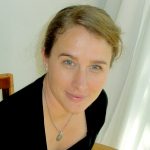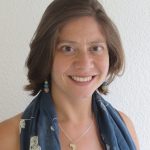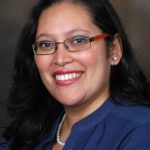 Dr. Elisabet le Roux
Dr. Elisabet le Roux
URDR Research Director.
Email: eleroux@sun.ac.za
Tel: +27 21 808 9248
CV available on request
ProfileElisabet has a proven track record in mixed methodology research work on gender-based violence and religion, with a focus on qualitative research especially in conflict and post-conflict settings. She is a recognised expert in innovative and feminist qualitative research on GBV in religious and traditional communities. In the past ten years, she has secured funding and delivered a range of evaluation and formative research projects in 22 countries across four continents, with a particular focus on gender equality, gender-based violence, women’s participation, and a critical lens on the important roles of religion and culture.
 Dr. Selina Palm
Dr. Selina Palm
URDR Researcher
Email: spalm@sun.ac.za
Tel: +27 21 808 9248
CV available on request
ProfileSelina has delivered technical and research projects for diverse clients across over 20 countries. She focuses on intersectional feminist approaches to religion, culture and human rights and its practical implications for children, women and marginalised sexualities. She holds a PhD in Religion and Human Rights. She has over 12 years of development experience as a NGO senior projects manager and grants maker within sub-Saharan Africa with a focus on HIV/AIDS and children's rights. She is also an educationalist, curriculum designer, youth leader and gender and sexuality facilitator and has published in academic and popular forums on gender-based violence prevention, violence against children, sexualities, practice-based knowledge, religion & human rights and youth participation.
 Prof. Nadine Bowers Du Toit
Prof. Nadine Bowers Du Toit
URDR Director
Email: nbowers@sun.ac.za
Tel: +27 21 808 9248
ProfileProf. Bowers Du Toit is Associate Professor in 'Theology and Development' in the Department of Practical Theology and Missiology at the University of Stellenbosch (SU). She holds an MTh (2002) and PhD in Theology (2005) specializing in Development from SU and has published in the fields of theology and development, gender and ethics. She is currently chairperson of the Practical Theology Society of South Africa and deputy chair of the International Society for Research and Study of Diaconia and Social Practice (REDI). She has received grants for several projects in the field of faith and development with her most recent URDR-related research entitled “Does faith matter?” Besides lecturing, publishing and supervising post graduate students, Nadine is often invited to address congregations, church leaders and FBOs on the church’s role in development. She serves on the board of two local FBOs and is the faculty representative at the Senate Committee for Social Impact at SU.
Our Approach
The Unit for Religion and Development Research (URDR) is a women-led, trans-disciplinary research unit based at Stellenbosch University, South Africa. It empowers communities, organisations and governments for development and violence prevention through evidence-based research, theory building from below and capacity building through training.
The URDR offers a unique research space, positioned within the multiple worlds of diverse religions and cultures. It has a focus on sustainable development that leaves no-one behind. This enables it to sensitively navigate the divides still prevalent in much development work today; to nurture cooperation between theory and practice, academies and faith institutions, and government and civil society; and to offer multi-sectoral approaches to the complex issues surrounding key sustainable development goals.
It specialises in developing participatory approaches that use feminist and rights-based methodologies. Working across the world, the URDR has received multiple University Flagship Project awards over the years from Stellenbosch University.
Our History
The URDR was founded in 2002 at Stellenbosch University with a focus on nurturing evidence-based good practice. It emerged in response to the need to equip faith communities in particular to play an ongoing, effective role in social transformation in post-apartheid South Africa. A critical religious development discourse was required to meet new challenges and contexts, to map and understand emerging trends and to equip faith communities to play an effective role alongside other actors in sustainable community development. The URDR helped pioneer a fourth-generation approach that emphasized quality and improved people-centred development practice. Over the last two decades, it has developed a critical yet constructive lens on religion and culture, and offers a range of tailored services to clients all over the world including research studies, impact and process evaluations, quality of life surveys, database and innovative tools development, baseline and endline surveys, safety audits, scoping studies, design of participatory research tools and protocols, community worker and field researcher trainings, design and delivery of under- and post-graduate courses as well as informal curricula development. It has delivered both primary and secondary qualitative and quantative research across over 20 countries in Africa, Asia, Europe and the Americas and has developed expertise in a number of core focus areas related to sustainable violence prevention and peace building for vulnerable groups such as women and children. For more about its projects click here.
"Sustainable development is the pathway to the future we want for all. It offers a framework to generate economic growth, achieve social justice, exercise environmental stewardship and strengthen governance." Ban Ki-Moon
